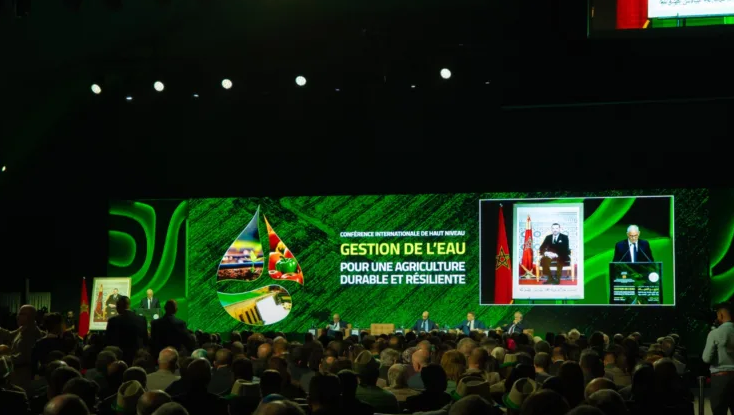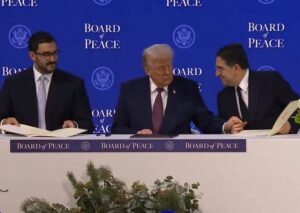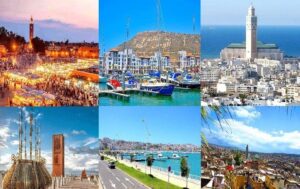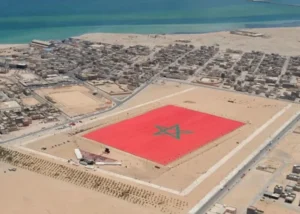Morocco Signs Landmark Water Management Agreements Amid Climate and Drought Challenges

Rabat, The Gulf Observer: In a significant step toward enhancing water sustainability, Morocco has signed two major agreements that aim to transform its approach to water resource management, particularly in response to the country’s escalating challenges related to drought and climate change.
The agreements were signed during SIAM 2025, as part of the International Conference on Water Management for Sustainable and Resilient Agriculture, held under the auspices of the Ministry of Agriculture and the Ministry of Equipment and Water. The high-profile event drew nearly 30 foreign delegations, including ministerial representatives from France and Italy.
The first agreement targets the Fez-Meknes aquifer, a critical water source. It promotes a participatory model that actively involves farmers, local authorities, and industrial stakeholders in managing and preserving the aquifer.
“This new contract will allow us to balance environmental protection and economic development,” stated Agriculture Minister Ahmed El Bouari, emphasizing the deal’s strategic importance in strengthening Morocco’s agricultural sustainability.
The second agreement enhances inter-ministerial coordination, particularly through improved data sharing and the development of advanced meteorological tools to support smarter agricultural planning.
“The exchange of data between our services and the development of specific meteorological tools will revolutionize agricultural decision-making,” said Nizar Baraka, Minister of Equipment and Water.
In a conversation with Morocco World News, Minister Baraka revealed that Morocco is collaborating with the World Water Council to establish a new international centre focused on renewable energy and water, aimed at sharing the country’s expertise in solar-powered seawater desalination.
By 2030, Morocco aims to generate 1.7 billion cubic metres of desalinated water, with 500 million cubic metres allocated for agricultural use.
“This will allow us to irrigate over 100,000 hectares – enabling the cultivation of high-value crops and reinforcing our food sovereignty,” Baraka added.
Additionally, one of the new initiatives will support earthquake-affected regions, particularly through a groundwater contract linked to the Moulay Abdeslam dam, which is expected to irrigate up to 30,000 hectares, beginning with an initial 10,000 hectares.
Both ministers underlined that these strategic actions are in alignment with King Mohammed VI’s 2024 royal address, which set a national target of covering 80% of irrigation needs through modern and resilient water strategies.
“In the face of growing water stress, these agreements reflect our commitment to deliver the royal vision,” El Bouari affirmed.
Experts attending the conference welcomed Morocco’s participatory approach to groundwater governance, hailing it as a regional model for sustainable water management and a proactive response to future climate resilience.


